Desk of Contents:
- The Position of AI in Schooling
- Case Research of AI in Schooling
- Challenges of AI in Schooling
- The Way forward for AI in Schooling
Don’t all of us want to get a tutor who may assist and information us at our personal tempo for so long as he by no means drained? What if each classroom had one thing related? Sounds futuristic, proper? Nicely, due to Artificial Intelligence (AI), this future has simply arrived. In response to the supply, educators save 20% of their time by automating grading and lesson planning. Synthetic Intelligence is sharpening the weapon, making schooling extra accessible, private, and efficient than ever.
However how has AI reworked lecture rooms, modified studying strategies, and affected instructional establishments? Dive with us into this and uncover how AI continues to rework the academic future, one algorithm at a time.
The Position of AI in Schooling: Remodeling the Studying Panorama
Image Courtesy: aits-tpt.edu.in
Synthetic Intelligence (AI) is now not an idea that’s confined to science fiction cinemas, it’s remodeling the way in which we be taught and train. In schooling, AI is essential in breaking down current conventional partitions, establishing inclusivity, and establishing dynamic studying environments for every particular person.
What’s the position of AI in schooling and why is it so revolutionary? Let’s discover out:
1. Personalised Studying: One Dimension Doesn’t Match All
Have you ever ever sat in a classroom and felt the lesson velocity was both too gradual or too quick to fit your needs? This may be remedied by discovering out that know-how will adapt the educational expertise for every pupil.
- Adaptive Studying Platforms: DreamBox and Coursera embrace AI algorithms that reformulate content material with college students’ progress and understanding.
- Personalized Suggestions: AI gives instantaneous suggestions, to make sure college students have understood ideas, earlier than transferring additional.
Give it some thought: Wouldn’t you like having a studying companion who adapts to your tempo?
2. Good Content material: Studying Past Textbooks
Textbook days have gone with the time. AI brings dynamic and interactive content material really to college students:
- Digital Classes: AI-Powered Platforms presents classes by way of incorporating extremely partaking video classes utilizing quizzes and simulations.
- Content material Creation: AI may construct quizzes, assignments, and even curriculum plans inside a number of minutes.
Fast Tip: Subsequent time you should utilize an AI studying instrument whereas caught on a subject and try the idea in motion!
3. Digital Tutors: Schooling Anytime, Anyplace
Who stated you should be within the classroom to be taught? With the arrival of AI digital tutors, schooling is made obtainable to all.
- 24/7 Availability: There are a lot of platforms, together with Carnegie Studying, that present on-demand tutoring.
- Price Efficient: Digital tutors save prices on hiring private tutors.
Query for You: Would you favor a digital tutor who’s at all times obtainable or a human tutor with restricted time? Remark beneath!
4. Automating Administrative Duties: Let Lecturers Train
Ask any Trainer in the event that they devour a a lot time in grading and cleansing works. Sure, AI is right here to assist.
- Automated Grading: AI is ready to grant the scholars the marks they obtain for answering any kind of query multiple-choice or essay.
- Streamlined Communication: Solutions by chatbots reduce the burden on directors by permitting college students to ask questions with out elevating their heads.
Enjoyable Reality: Lecturers save on common 13 hours per week utilizing AI for grading!
5. Breaking the boundaries of AI:
AI is making schooling inclusive by addressing boundaries like language and accessibility:
- Language Translation: Duolingo and Google Translate present for college kids to be educated of their native language.
- Accessibility Options: AI-enabled speech-to-text and display screen readers allow individuals with inputs for use for the disabled.
Problem: How will you reply this query? Do you suppose AI can bridge the digital divide in such areas?
6. Knowledge-Pushed Insights:
Synthetic Intelligence just isn’t solely made extra compelling however helps establishments, in addition to educators, make selections regarding themselves.
- Analytics: AI devices will watch pupil progress, flagging areas the place enhancements inside studying should be made.
- Advantages: Methods will be tailor-made by educators to assist struggling college students or present extra enhanced curriculum for superior college students.
7. Selling Lifelong Studying:
AI’s affect isn’t restricted to varsities or universities—it extends to skilled growth and skill-building.
- Functions: Platforms like LinkedIn Studying and Coursera supply AI-curated programs that align with profession targets.
- Consequence: People can be taught at their very own tempo, buying new abilities to remain related in evolving industries.
8. Democratizing Schooling:
AI’s strongest position is making this wonderful schooling accessible to everybody clearly, regardless of location or socio-economic strata.
- Initiatives: AI-driven purposes and World Large Internet portals are in a position to assist college students get high-quality schooling outdoors huge cities or from much less privileged areas.
- Impression: This democratization will probably be efficient in closing the hole in schooling inside the world, one pupil at a time.
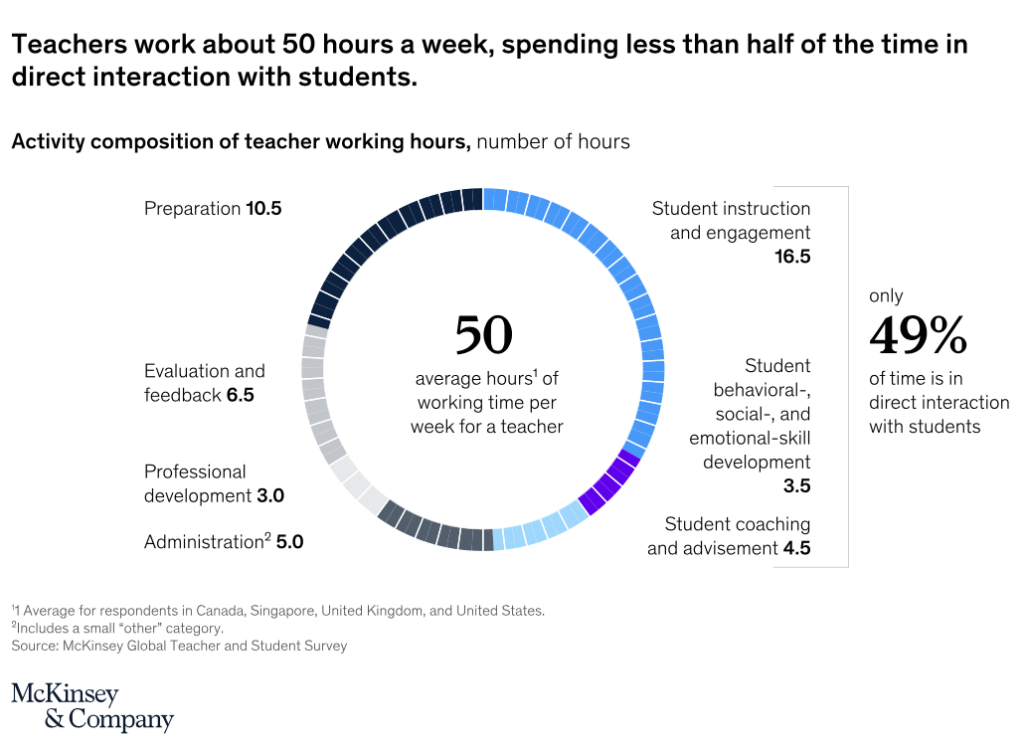
Image Courtesy: The World Financial Discussion board
Case Research: AI in Schooling
Synthetic Intelligence (AI) has been adopted in numerous instructional settings, creating tangible impacts. Listed here are 5 compelling case research that illustrate how AI is remodeling schooling globally:
1. Carnegie Studying: AI-Powered Math Tutoring

Image Courtesy: blogspot.com
Overview: Carnegie Learning, a U.S.-based schooling firm, developed an AI-driven tutoring system known as MATHia. This platform makes use of machine studying algorithms to offer customized math classes.
Impression:
- Improved pupil outcomes with a median enhance of 30% in math proficiency.
- Lecturers may monitor real-time efficiency, enabling focused interventions.
- Success Tales: Faculties utilizing MATHia reported higher engagement and decreased math nervousness amongst college students.
2. Microsoft Immersive Reader: Accessibility for Various Learners

Image Courtesy: binaryfork.com
Overview: Microsoft’s Immersive Reader is an AI-powered instrument designed to assist college students with studying disabilities, resembling dyslexia, by bettering studying and comprehension abilities.
Impression:
- Options like text-to-speech, font customization, and translation made studying accessible to college students in over 60 languages.
- Elevated inclusivity in lecture rooms, guaranteeing that each one college students may take part successfully.
- Case Examine: A college district in Colorado applied Immersive Reader and noticed a 40% enchancment in literacy charges amongst struggling readers inside a yr.
3. Squirrel AI: Adaptive Studying in China
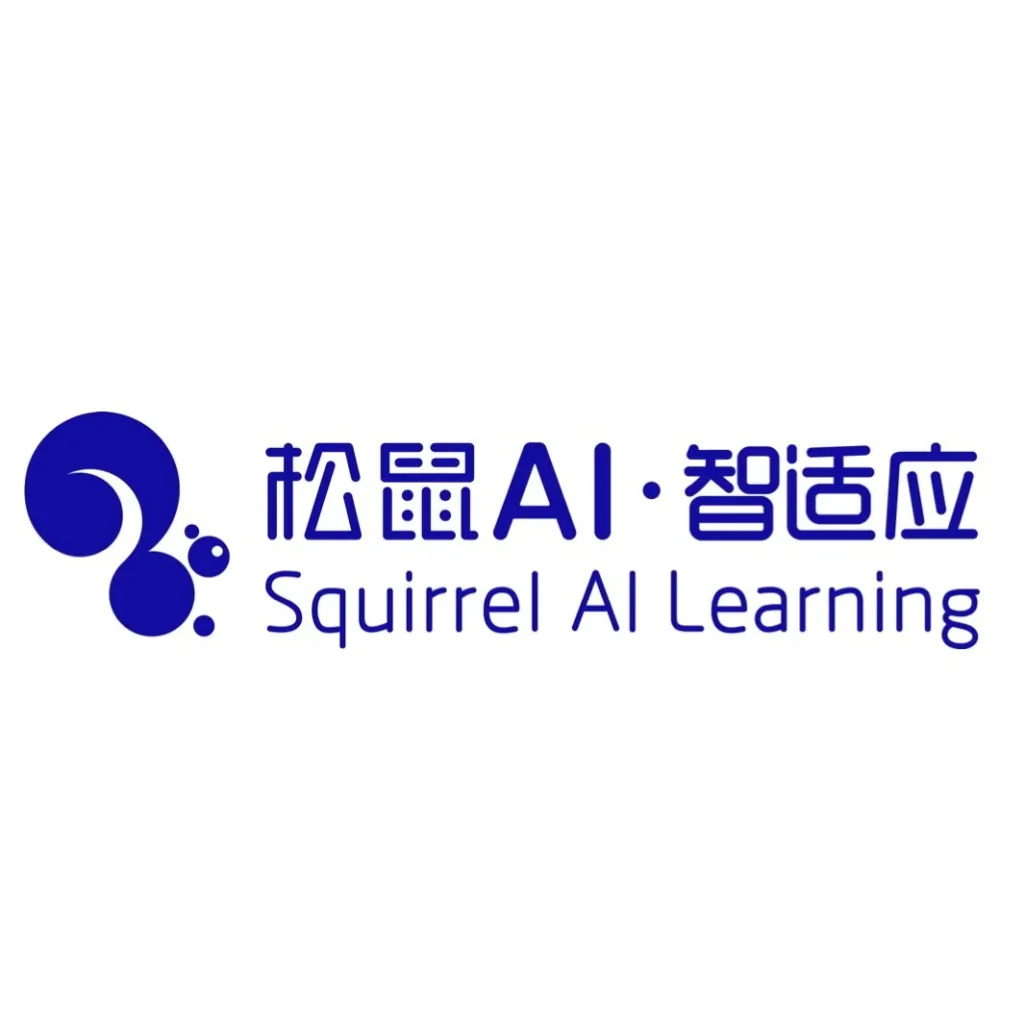
Image Courtesy: siliconspectra.com
Overview: Squirrel AI, a Chinese language ed-tech firm, developed an AI-driven adaptive studying system to personalize pupil schooling throughout numerous topics.
Impression:
- The platform recognized data gaps and adjusted classes to handle particular person wants.
- College students who used Squirrel AI for simply six months carried out 30% higher than their friends in conventional lecture rooms.
- Attain: Over 2,600 studying facilities in China now use Squirrel AI, making high quality schooling accessible even in distant areas.
4. Duolingo: AI in Language Studying

Image Courtesy: PC Journal
Overview: The favored language-learning app Duolingo leverages AI to personalize classes, monitor person progress, and optimize studying paths.
Impression:
- The AI algorithm adapts workouts to match a learner’s proficiency, guaranteeing retention and development.
- With over 500 million customers worldwide, Duolingo has made language studying accessible and interesting.
- Case Examine: In a managed examine, Duolingo customers have been discovered to realize language proficiency equal to a semester of university-level coursework in 34 hours.
5. Third Area Studying: AI for One-on-One Tutoring
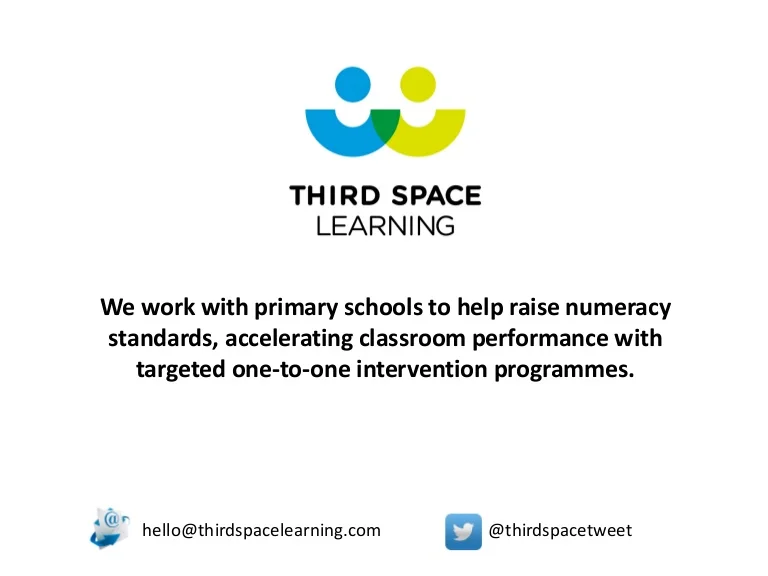
Image Courtesy: SlideShare
Overview: UK-based Third Space Learning makes use of AI to offer reasonably priced one-on-one math tutoring for major faculty college students.
Impression:
- The AI analyzes pupil interactions throughout classes to offer tutors with data-driven insights for tailor-made educating.
- Over 80,000 college students have benefited from improved math abilities, notably in underprivileged communities.
- Case Examine: A London faculty district utilizing the platform noticed a 20% enchancment in check scores amongst college students receiving AI-assisted tutoring.
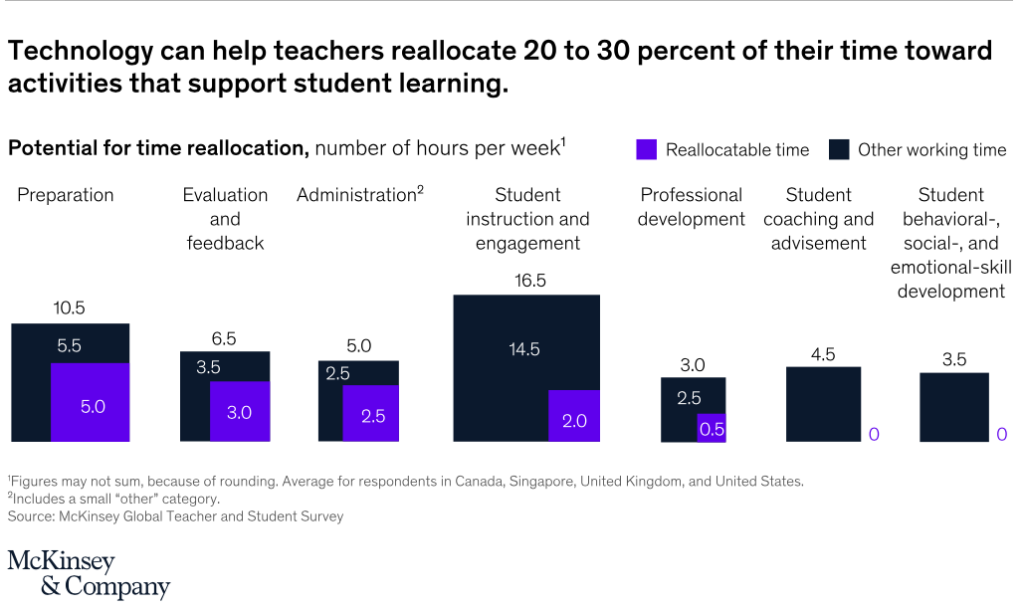
Image Courtesy: The World Financial Discussion board
Challenges of AI in Schooling:
Whereas Synthetic Intelligence (AI) has immense potential to revolutionize schooling, it’s not with out its challenges. Let’s discover the important thing challenges of AI in schooling and the way they affect college students, educators, and establishments.
1. Knowledge Privateness and Safety Issues:
The AI system is established solely on knowledge which might embrace delicate data regarding pupil customers. The safety and privateness of such data have to be ensured as breaches reveal private data.
Answer: Stronger regulation, extra strong encryption strategies, and user-friendly insurance policies relating to knowledge utilization imply rather a lot to guard customers.
2. Bridging Digital Divide and Accessibility:
All college students usually are not outfitted with the mandatory know-how and web connection to entry AI instruments. College students in city areas benefit from the large entry that know-how supplies, and those that stay in underprivileged elements have change into left behind.
Answer: Funding in digital infrastructures and reasonably priced entry to units is required to make sure inclusivity.
3. Over-Reliance on Know-how:
AI instruments are highly effective, but it surely doesn’t change the emotional intelligence and relationship-building qualities of a human instructor. Being overly depending on AI would possibly result in a lack of essential delicate abilities that discover their greatest nurturing in human interactions, together with empathy and teamwork.
Answer: AI ought to complement conventional modes of instruction for a balanced classroom expertise.
4. Bias in AI Algorithms:
AI techniques are good primarily based on the information they’re educated in; typically that knowledge is biased. Biased AI algorithms result in the unfair remedy of sure teams of scholars below such techniques reinforcing stereotyping and inequality.
Answer: Moral AI design and different datasets utilized in coaching ought to come first for builders.
5. Resistance to Change:
Introducing AI into education often faces resistance from educators, students, and institutions. Teachers may feel overwhelmed by new technologies, and schools may lack the resources for implementation.
Solution: Comprehensive training programs for educators and phased integration of AI tools can help ease the transition.
The Future of AI in Education: A New Era of Learning
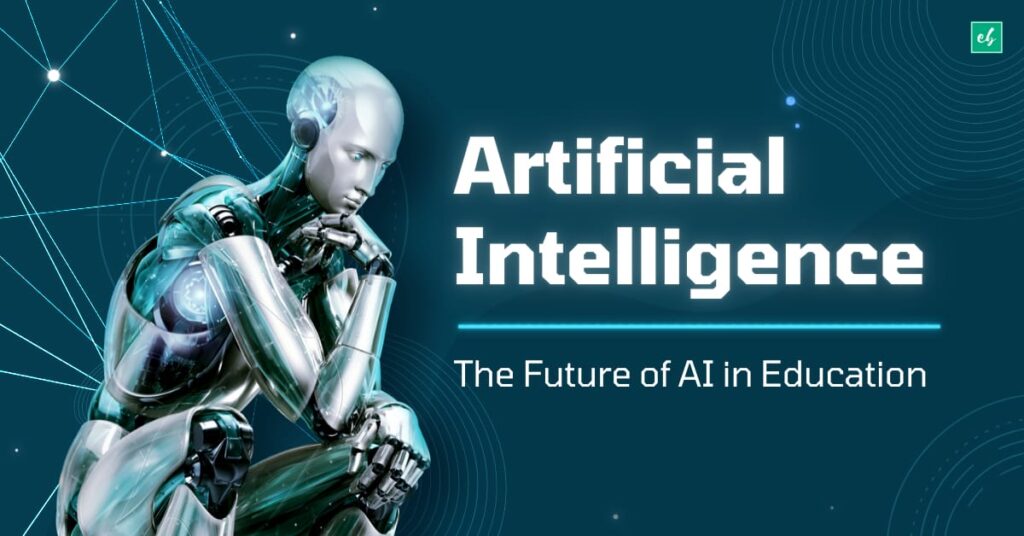
Picture Courtesy: fixbugtechnology.blogspot.com
Artificial Intelligence (AI) is poised to redefine education, offering unprecedented opportunities for personalization, accessibility, and innovation. As we move forward, the integration of AI in education promises to reshape traditional teaching methods, creating a more inclusive and efficient learning ecosystem. Let’s explore what the future holds for AI in education:
1. Personalized Learning at Scale:
AI provides hyper-personalized learning to every student by adjusting content and pace according to individual needs. It will further promote improved engagement and consequently better outcomes.
2. Virtual Classrooms and AI Tutors:
Virtual assistants and online tutors will provide personal assistance to students 24 hours a day, 7 days a week.
3. Global Accessibility:
AI will bridge the education gap by delivering quality resources to underserved areas, making learning accessible to students worldwide regardless of location or socio-economic status.
4. Enhancing Teacher Support:
AI assumes all the repetitive tasks in administration so that the teachers may get time to spend very productive time in teaching, creating an environment of creativity, collaboration, and better critical thinking skills in the students.
5. Immersive Learning Experiences:
AI will be integrated with virtual reality (VR) and augmented reality (AR) in creating simulations of immersive environments for learning practically in fields including science, engineering, and medicine.
AI in education is not just about replacing traditional methods but enhancing them. It’s about creating a collaborative environment where technology supports teachers and students alike. While challenges remain, the potential benefits of AI far outweigh the downsides.
What’s your take on AI in education? Are you excited about its potential, or do you have concerns? Are you ready to embrace this new era of learning? Let’s discuss this in the comments below!
And if you’re as excited about DeFi, blockchain, and the evolving Web3 universe as we are, join our community! Subscribe to our newsletter for the latest updates, trends, and insights—let’s navigate the world of Web3 together!
You might also like
More from Web3
Cambridge Cracks the Code: $2.3B VC Boom, Deep Tech Surge — But Inclusion Gaps Remain
CAMBRIDGE, UK — Might 2025: Cambridge’s deep tech ecosystem is rewriting the playbook for European innovation, and the numbers …
Wind Turbine Automation Market Report 2025-2034: Industry Overview, Trends, And Forecast Analysis
Wind Turbine Automation The Wind Turbine Automation Market Report by The Enterprise Analysis Firm delivers an in depth market …
America’s Biggest Banks Consider Teaming Up to Challenge $245B Stablecoin Market: WSJ
Briefly Main U.S. banks, together with JPMorgan and Financial institution of America, are reportedly exploring a shared stablecoin challenge. The transfer …












